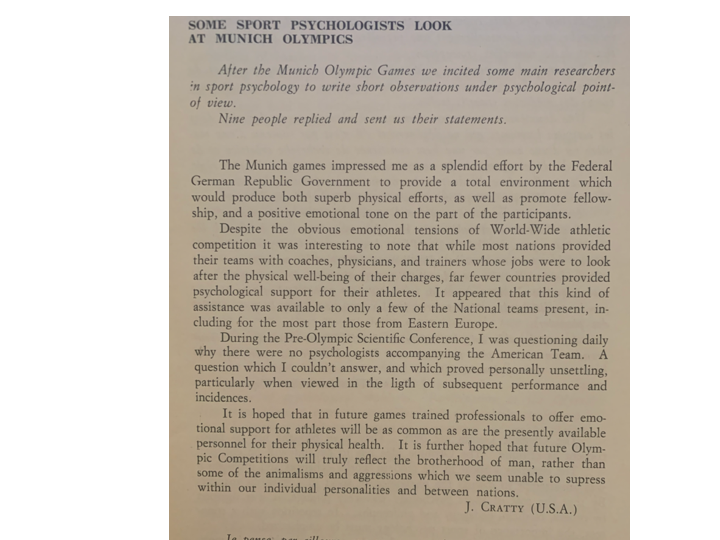“May the force of sacrifice that our young people have shown be ours as well.”
It seems to me that this is the concept that unites the young people of this Olympic Games with all those who have excelled in history. Sacrifice to get there, stay there and for some to win. It’s a concept that has been around for thousands of years. From Aristotle we received a definition of excellence very similar to the one given today: “We are what we constantly do. Excellence therefore is not an act but a habit.”
This was the Olympic Games in which the mind-body unity became apparent to all.
The psychological difficulties that many athletes have manifested and especially the super-winners, the serial winners from Simon Biles to Naomi Osaka to Novak Djokovic, have put us in front of an unequivocal role that the psychology of each plays in determining the choices and performance. Psychologists know these issues well but the general public often wants to ignore or understand them. The realization that even athletes prepared to deal with the stresses of the Olympics are still vulnerable should teach us that we must commit to reducing our daily stresses because we are all fragile.
It was the Olympics for families.
Surveys have always emphasized the role of family affections. The athletes recognize this, the families, each in their own way, more often the mothers if the father has been absent, are a fundamental pillar of their success. This should come as no surprise, of course there are exceptions to this rule but no one grows up alone. Parents have not only provided organizational and economic support but represent an indispensable emotional bond. The media is full of statements of this kind, sometimes one of the parents has been the first coach of some of these young people or continues to be so even when they are champions.
It was the Olympics of dreams realized.
Gregorio Paltrinieri, Vanessa Ferrari, Federica Pellegrini, Luigi Busà and Antonella Palmisano, among others, are the example that one must cultivate one’s dreams without fear of not succeeding, even when one starts from difficult conditions. As they say in everyday language, they achieved their successes not only thanks to their preparation but because they put their heart into it. Let’s use them as examples to get out of the condition of passivity that often affects many people and that can lead to a condition of incapacity and renunciation towards life.
It was the Olympics of mental coaches.
Mental coach is a concept that I don’t like, on the other hand in sport there is a tendency to separate the different professionals who work with athletes. So there is the physical trainer, the coach, the doctor, the physiotherapist, not to mention the osteopath, the posturologist, the vision coach and so on. Each plays a defined role and, therefore, go for the mental coach who has a degree in psychology. Italian athletes have recognized the importance of this and this perception of usefulness is fundamental to the recognition of this type of expertise. It is something absolutely consolidated in most countries, but in Italy it is often a service that athletes choose for themselves and the psychologist often does not participate in international events. In these cases a remote counseling is provided that cannot be as effective as the one in presence. I hope that the success of the Italian Olympic team in this Olympiad, does not confirm the idea that this is okay and that is that at competitions you need the coach, the physical trainer, the physiotherapist and the doctor while the mental coach can do his work from home.






